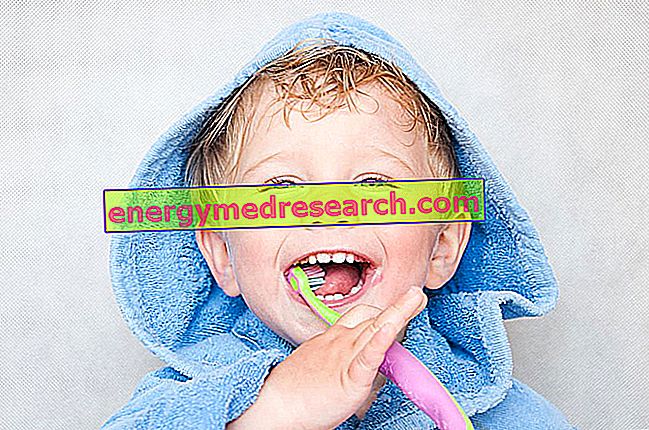
The health of the child's teeth depends heavily on parental intervention.
The first gesture of love for the dental health of their child lies with the mother, already during pregnancy. In fact, there are evidences that suggest an association between the mother's periodontal pathologies and gestational complications, such as premature birth, fetal growth retardation and spontaneous abortion. It has also been shown that the bacterial strains found in the saliva of children are the same found in that of their mothers; this link is due to the vertical transmission through kisses and indirect contact of the maternal saliva with that of the child (for example through cutlery, baby bottles, pacifiers etc.).
A mother at risk of caries and periodontal disease should therefore undergo a thorough dental examination already during pregnancy, or even earlier if this is scheduled, scrupulously following the dentist's instructions. If the mother, or anyone else takes care of the child, proves to be particularly carioreceptive, care will be taken to avoid the possible causes of vertical transmission of cariogenic species.
Cleaning with a toothbrush should start from the first year of life or even before, but strictly without toothpaste. Before introducing the use of the toothbrush it would be advisable to pass a damp gauze over the gums of the child after meals; the importance of this gesture does not depend so much on the actual sanitizing effectiveness of the intervention, but on the imprinting of the habit of brushing teeth after meals in the memory of the newborn.
The brushing of the child's teeth is initially entrusted to the parents, who will take care to practice it especially in the evening, after dinner. In this regard it is particularly educational to go to the bathroom together to brush your teeth after eating, and then resume normal evening activities; vice versa, forcing the child to brush his teeth before sleeping transmits a negative message, as oral hygiene is learned as a forced behavior associated with the unpleasant event of separation from the parents.
After the first few months of life, the child can begin to become familiar with the instrument by imitating the parents, but it is good that they complete the child's oral hygiene after letting it experiment. After the first year, toothpaste should be used in minimal quantities (pea size), making sure that the child does not swallow it. Alternatively, some dentists recommend a dry brushing, followed by rubbing a gauze padded with fluoridated toothpaste on the teeth, leaving it to act for a few seconds before rinsing the mouth. The intake of fluoride (fluoroprophylaxis) direct (through toothpaste) or indirect (through fluoridated tablets) is in fact important for the dental health of the child; however, it must be carefully prescribed by the dentist to avoid the appearance of fluorosis (damage from excessive intake of fluoride).
The use of plaque detectors can contribute to the acquisition of the correct brushing technique by the child, stimulating him to look for the plaque and to remove it properly.
As far as eating habits are concerned, dentists recommend to avoid sticky foods and repeated consumption of sweets during the day. The latter, in fact, cannot be denied to the child, but it would be good to give them to the main meals and only once a day. For example, to prevent tooth decay, it is much better to consume 5 candies all at once than to eat one at 5 different times of the day. This is to avoid maintaining an acid environment due to the continuous fermentation of sugars by cariogenic bacteria.
In the first months of the child's life, when his palate is still easily educated, those behaviors that would lead him to prefer the sweet taste, such as the use of teats mixed with sugar or honey, should absolutely be avoided.
All these tips are fundamental not only in the immediate, but also to promote better oral health in the child's adult life.



